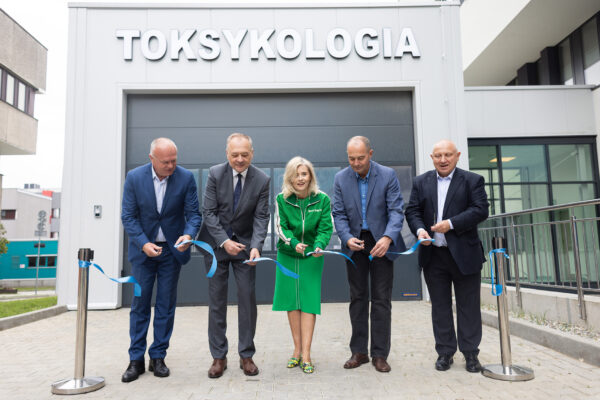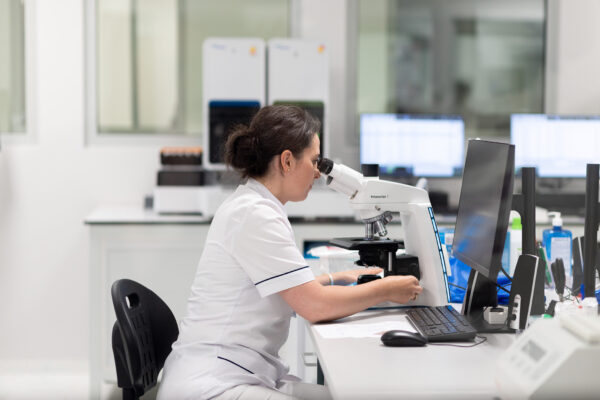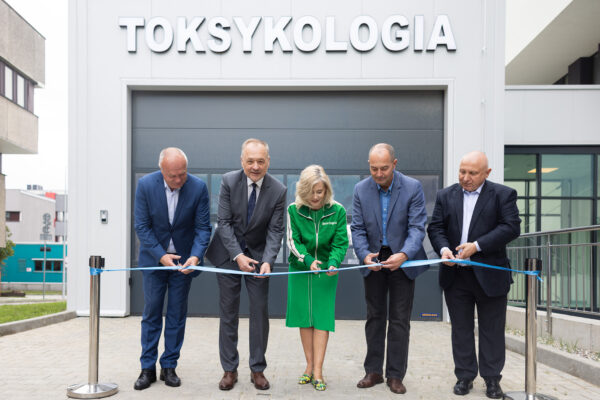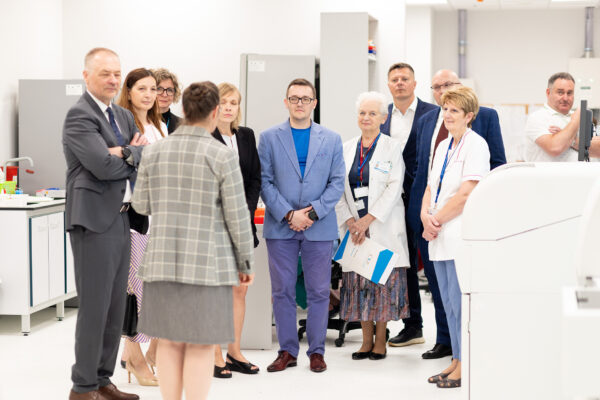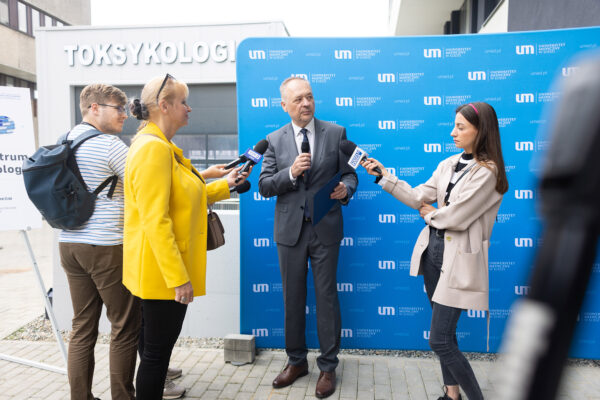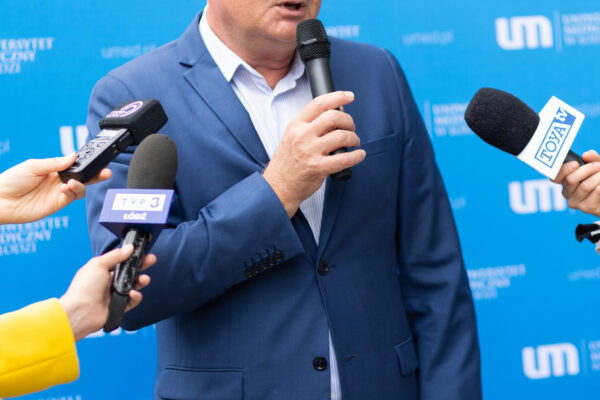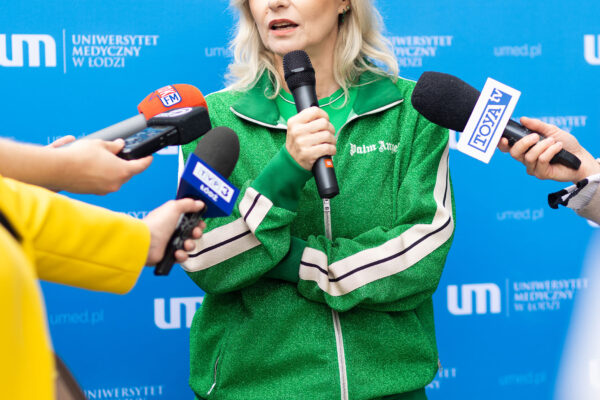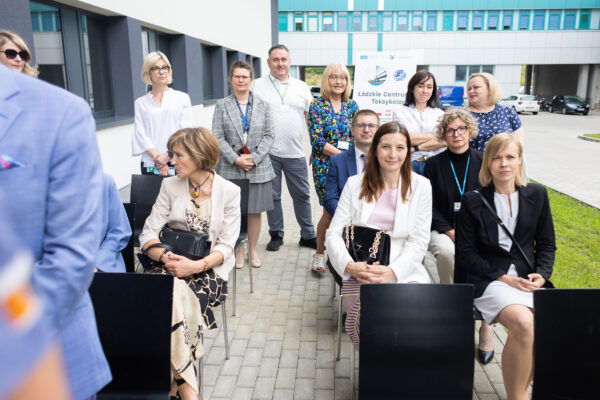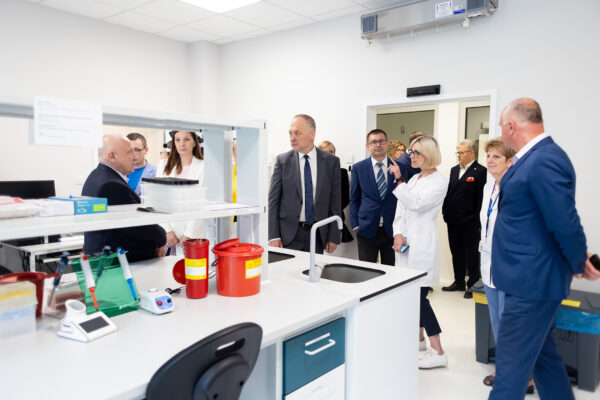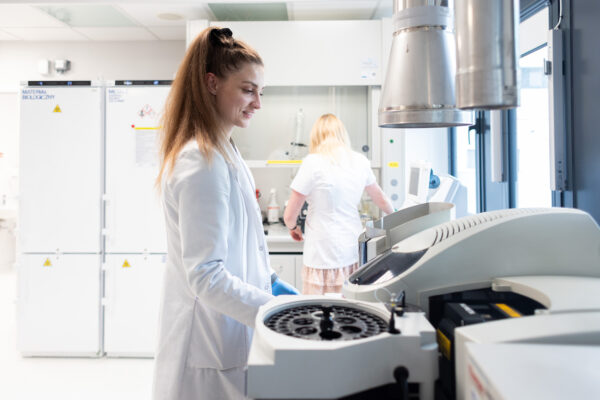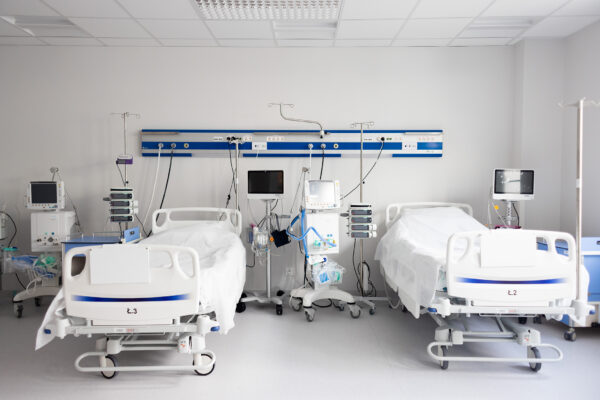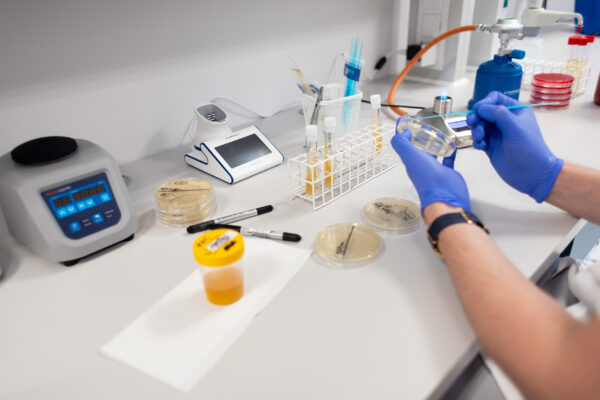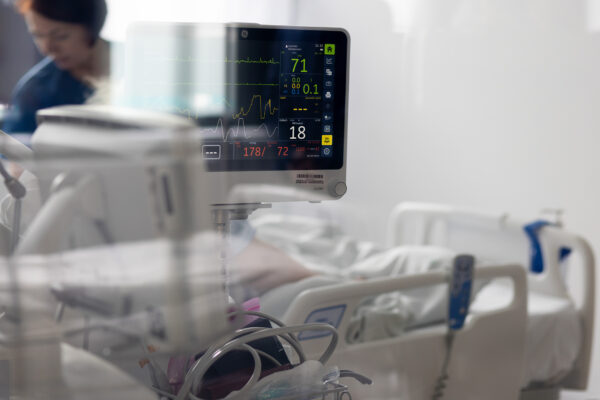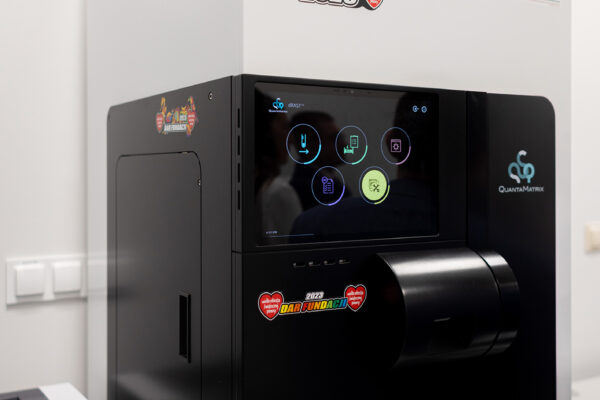LODZ TOXICOLOGY CENTRE OPENS
The agreement to initiate the investment of Lodz Toxicology Centre (LTC) was signed in July 2022. Today LTC is ready to admit the first patients. The funds for the project, amounting to over PLN 65 million, were provided from the state budget: a targeted subsidy from the Ministry of Health. The total value of the project reached over PLN 70 million.
On Tuesday, June 4 2024 LTC was officially opened. The symbolic gesture of cutting the ribbon was made by prof. Radzisław Kordek, Rector of the Medical University of Lodz, Monika Domarecka, Director of the Central University Hospital, , prof. Adam Antczak, Vice-Rector for Clinical Affairs and Research Management, prof. Waldemar Machała, Head of the Department of Anaesthesiology and Intensive Care and Artur Olsiński, Director of Lodz Regionional Branch of the National Health Fund.
Lodz Toxicology Centre fits perfectly into the expansion of the campus and complements the ongoing Construction Stage of the Clinical and Didactic Centre of the Medical University of Lodz together with the Academic Oncology Centre.
The Centre is not only a benefit for patients but it also provides opportunities for the development of teaching and conducting scientific research in toxicology, says prof. Radzisław Kordek, MUL Rector.
Lodz Toxicology Centre has been constructed in the premises of the Campus of Clinical and Didactic Centre Medical University of Lodz. The initiative used part of Building A-2, bridged to the adjacent multi-storey Building A-1, where the Central University Hospital is located.
The LTC usable area of over 3000 m² includes: Acute Poisoning Department (Subunit of Toxicology) and diagnostic laboratories. Moreover, the Department of Anaesthesiology and Intensive Care has been expanded and a separate driveway for ambulances has been built (exclusively for LTC patients).
Part of Acute Poisoning Department (Subunit of Toxicology) directly linked to the patients admission (decontamination rooms, the procedure room, the resuscitation and treatment room, diagnostic analysis laboratories, antidote bank) was located on the ground floor of building A2.
The remaining part of the Acute Poisoning Department occupies the first floor and this section includes patient rooms as well as the examination room, a psychologist’s surgery and the treatment room. Both parts of the Department situated on different floors are conveniently linked by two stairwells and a hospital lift. The project also involved the expansion of the Department of Anaesthesiology and Intensive Care by inclusion of a 4-unit intensive care room and nursing care units. Modern diagnostic laboratories are located on the underground storey of Building A-2.
Thanks to this investment, the hospital offers even more comprehensive care for patients with poisoning, both adults and children. The patients have an access to a team of specialists of a variety of health care areas, including intensive care, surgery, internal medicine, clinical pharmacology, nephrology and psychiatry. They can also use modern diagnostic laboratories (CT, MRI), a laboratory and an operating theatre open 24 hours a day. This will shorten the diagnosis and treatment time, improve patient comfort and reduce the costs of transport to other facilities, says Monika Domarecka, Director of the Central University Hospital.
The solutions adopted at the design stage of LTC are consistent with the latest medical achievements and ensure the possibility of applying the highest standards of treatment, consistent with European guidelines.
The first toxicology patients were admitted to the Central University Hospital three years ago, in July 2021 and they were most frequently poisoned by alcohol, drugs or stimulants, often after suicide attempts. I am convinced that now we will be able to help them even more swiftly and effectively. We have great staff, and now we also have modern facilities at our disposal, emphasizes Prof. Waldemar Machała, Head of the Department of Anaesthesiology and Intensive Care, within which the Toxicology Subunit operates.




